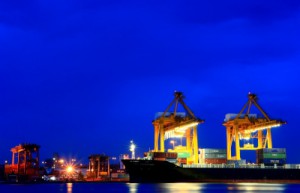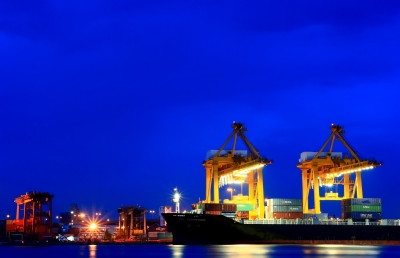 More carbon emissions regulations should accompany the expected doubling of seaborne trade by 2030, according to International Maritime Organization (IMO) secretary general Koji Sekimizu.
More carbon emissions regulations should accompany the expected doubling of seaborne trade by 2030, according to International Maritime Organization (IMO) secretary general Koji Sekimizu.
In his first visit to the Philippines since becoming IMO chief, Sekimizu noted the agency will impose the mandatory Energy Efficiency Design Index (EEDI) for new ships by 2013 but even more similar measures are needed for the long term.
“From our estimates, (seaborne trade) will double by 2030 and the same growth percentage (will be seen) by 2050, suggesting that carbon emission from ships will likewise double,” Sekimizu said in a conference with maritime media held at the Maritime Industry Authority office last week.
“The challenge really is if we should be satisfied with the EEDI or should we establish additional measures such as market-based measures to deal with the increase in carbon emissions and I am facing a very important debate on this,” he said.
“Our target is really to reduce emissions from ships by at least 30% by 2050.”
The EEDI requires new ships to be more energy efficient, thereby releasing less greenhouse gases. The regulations are non-prescriptive as long as the required energy-efficiency level is attained; ship designers and builders are free to use the most cost-efficient solutions for each particular ship.
The use of EEDI will result in an average annual reduction of 151.5 million tons of carbon dioxide, a figure that by 2030 will increase to an annual average of 330 million tons. Carbon dioxide reduction measures will translate to a significant reduction in fuel consumption, leading to savings in fuel costs for the shipping industry.
Aside from the EEDI, the IMO is set to impose a mandatory Ship Energy Efficiency Management Plan or SEEMP for all ships. This is a plan which sets out, for an individual ship, how energy savings can be made.
In his Philippine visit that started Tuesday last week, Sekimizu visited the First Maritime Center, the home of the IMO regional office in Manila, and also met with President Benigno Aquino III and secretaries of the Department of Transportation and Communications, Department of Labor and Employment, and Department of Foreign Affairs, as well as Marina administrator Emerson Lorenzo.
Sekimizu also attended the dinner-forum hosted by the Philippine Interisland Shipping Association where the secretary general stressed the Philippines’ need to generate concrete policy actions that will lead to the development of the shipping industry.
Container Cranes Loading by happykanppy http://www.freedigitalphotos.net/images/view_photog.php?photogid=1948





